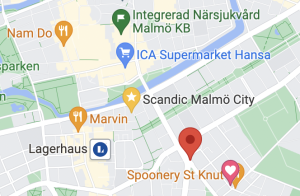
The Malmö Center for ISTDP is a training institute dedicated to the practice and promotion of Intensive Short-Term Dynamic Psychotherapy (ISTDP). Our center offers a wide range of short and long courses, as well as events, to cater to the learning needs of mental health professionals who are interested in mastering the principles and techniques of ISTDP.
Our faculty consists of highly experienced ISTDP trainers who are committed to providing the highest quality of training and support to our students. We’re a community of learners where everyone is getting regular supervision and are taking different trainings on an ongoing basis.
Our courses are designed to be interactive, experiential, and based on real-life clinical examples to ensure that our students gain practical skills and knowledge that they can apply immediately in their clinical work.
We offer both in-person and online courses to provide flexibility for our students. Our short courses cover foundational principles of ISTDP, while our longer courses are designed for more in-depth training in specific areas of ISTDP practice. In addition, we offer a range of events, including workshops, seminars, and conferences, which provide opportunities for ongoing professional development and networking.
Mission statement
Our mission is to give clinicians the best possible chances to learn high quality psychotherapy skills in a safe setting. We want to provide training of excellent quality. We also want to contribute to the long term development of ISTDP. Not only through research and theory development, but also through providing a conversation space where different branches of ISTDP can co-exist.
Central principles
Deliberate practice. Psychotherapy education has historically leaned too heavily on theoretical knowledge. At the Center, all of our courses and events try to make sure that the practical craft of psychotherapy is at the center. Deliberate practice is a teaching structure that focuses on learning through role-playing the specific situations that got the learner stuck. This implies that the teaching often targets emotional stuckness in the therapist, as a means to get the therapy unstuck. In the past decade, researchers have found that the principles of deliberate practice seem to be one of the few teaching structures that has empirical support (e.g. Goldberg et al. 2016).
Scientist-practitioner paradigm. ISTDP was developed by Habib Davanloo, who was frustrated with the ineffectiveness of psychoanalytic technique of his time (1960s). He treated each case as an experiment, using video-recordings to track his results and adapting accordingly, and in this way developed the central principles of ISTDP. We believe that therapists should keep this tradition alive by continuous monitoring of qualitative and quantitative outcomes, adhering to ISTDP in a flexible way according to the needs of the specific patient.
Therapist inner growth. ISTDP is a technique-heavy form of psychotherapy, with lots of technique to learn and practice. Even though the technique is a central piece of learning ISTDP, it’s more important that ISTDP teaching helps the therapist develop a high emotional tolerance and openness. We encourage all learners of ISTDP to pursue inner growth through supervision, course participation, own therapy, physical exercise, mental exercise, and a healthy lifestyle in general. The technique is not effective in the hands of a therapist not ready to use it.
ISTDP growth. The discoveries of Davanloo should be honored by using the principles he used for learning from patients, to let ISTDP continue growing. We encourage further work on ISTDP theory and research to identify and address blind spots within the ISTDP framework, to make sure the model keeps evolving in dialogue with patients, colleagues, other forms of psychotherapy and findings from adjacent fields (e.g. neurobiology, experimental psychology, behavioral genetics and so on). In the coming decades we also look forward to seeing the scope of ISTDP expanded in terms of demography (age, sex, gender, migration, class etc.) and treatable conditions (e.g. OCD, trichotillomania, narcissistic personality disorder and so on).
Origins of Malmö Center for ISTDP
The MCI was founded in 2022 by Thomas Hesslow, who felt that ISTDP needed a geographical center somewhere in southern Sweden.
Location

The center is located in central Malmö in southern Sweden. The street address is Amiralsgatan 20.
Contact information
Please refer all questions and inquiries to Thomas Hesslow.
